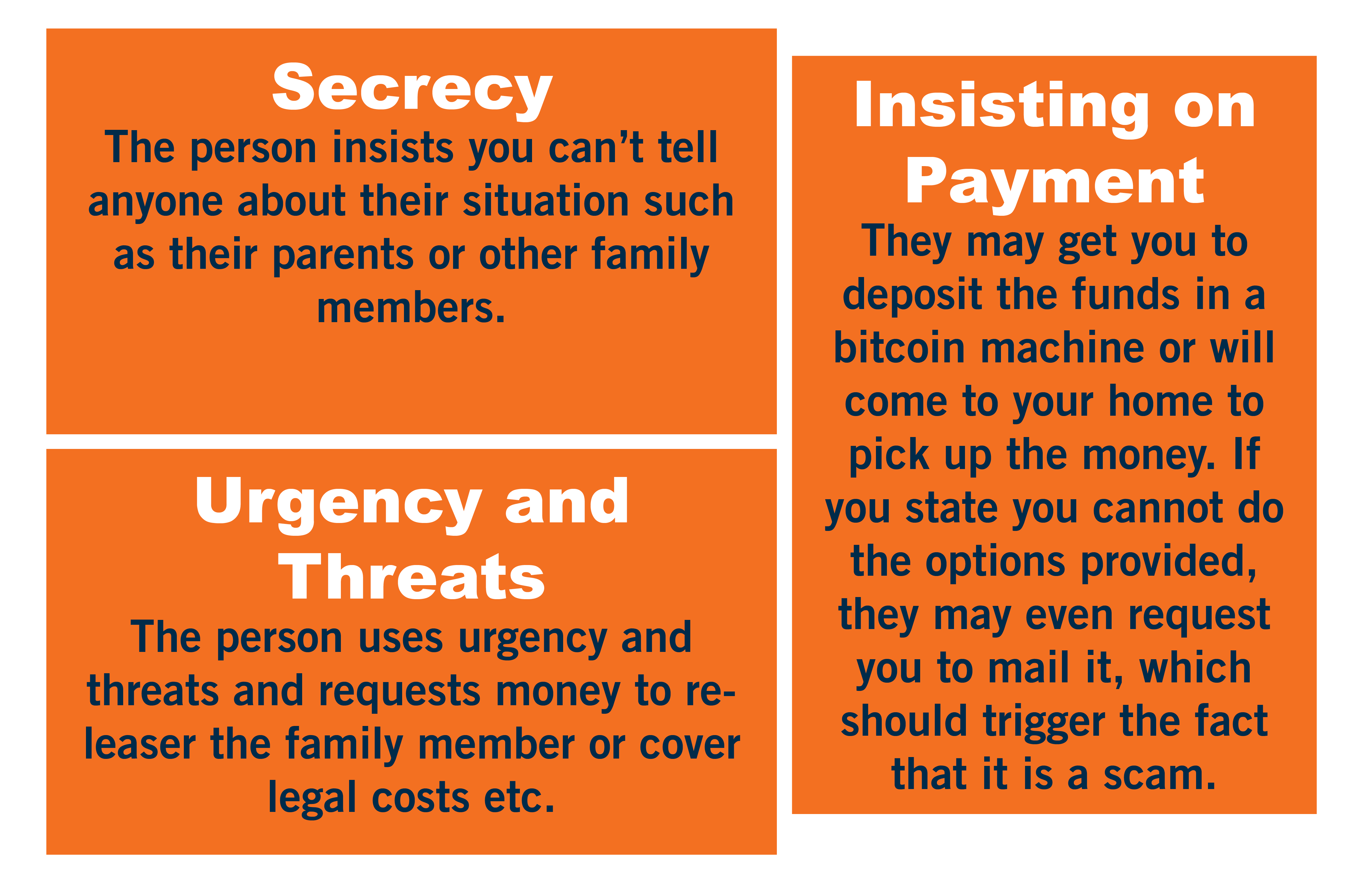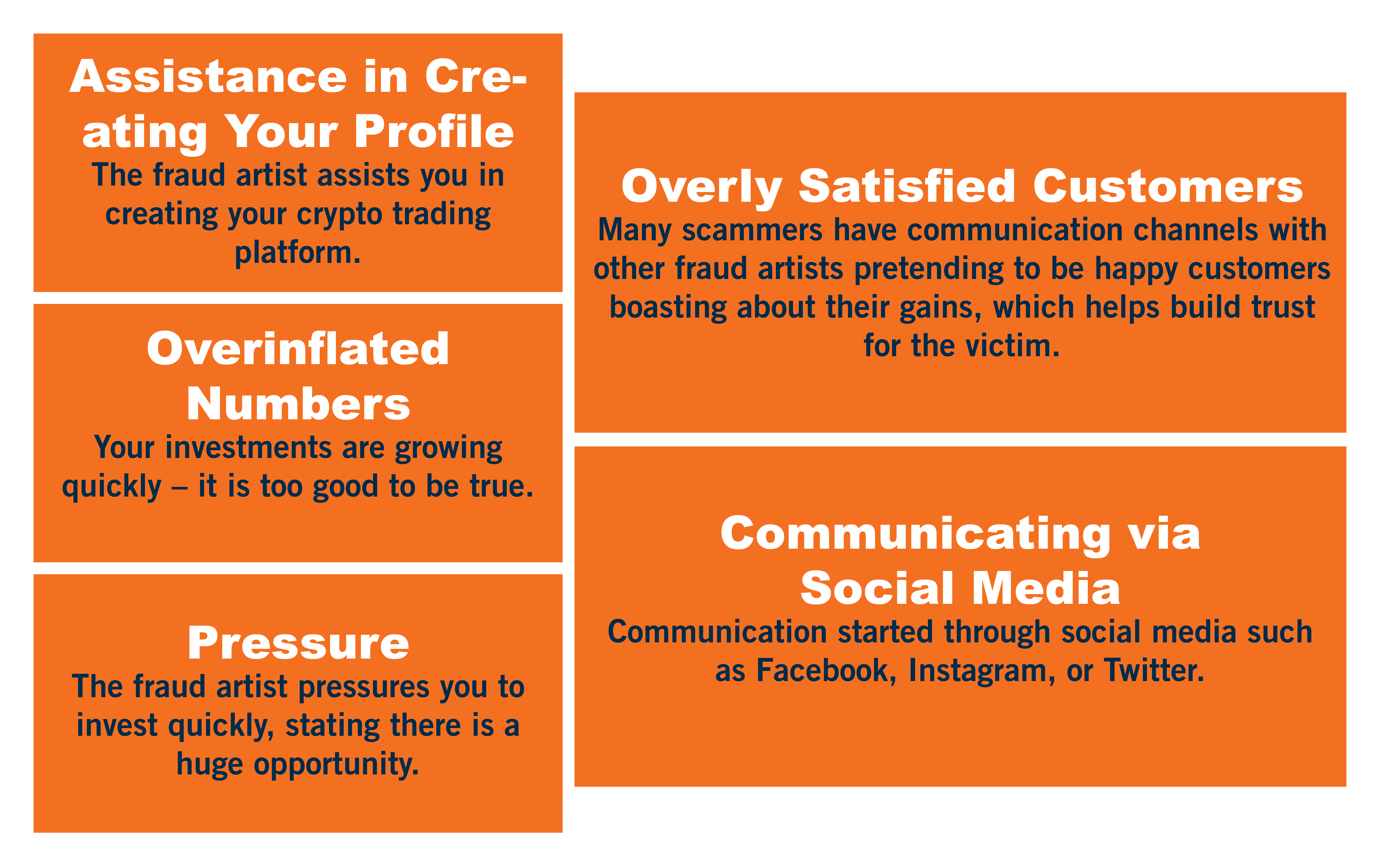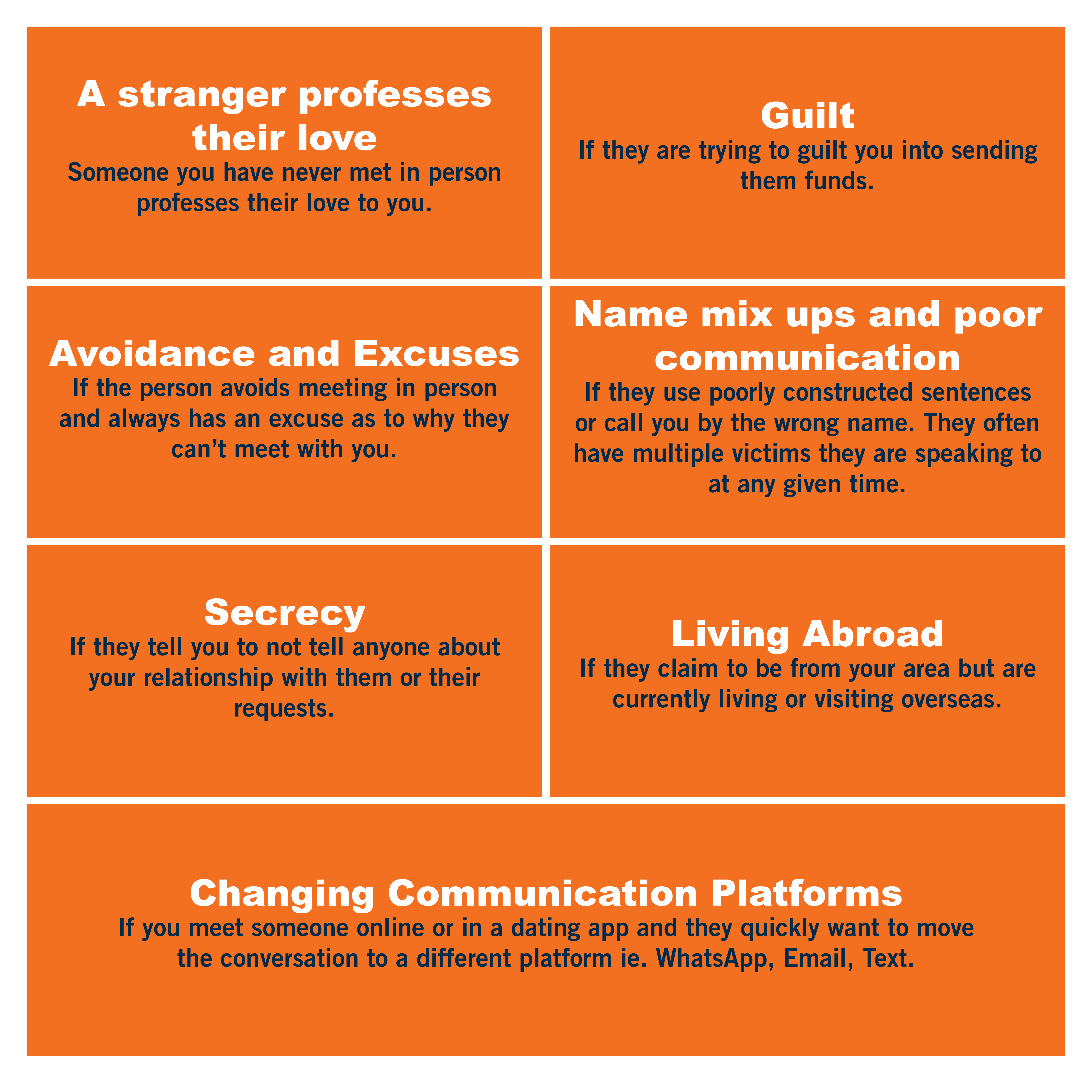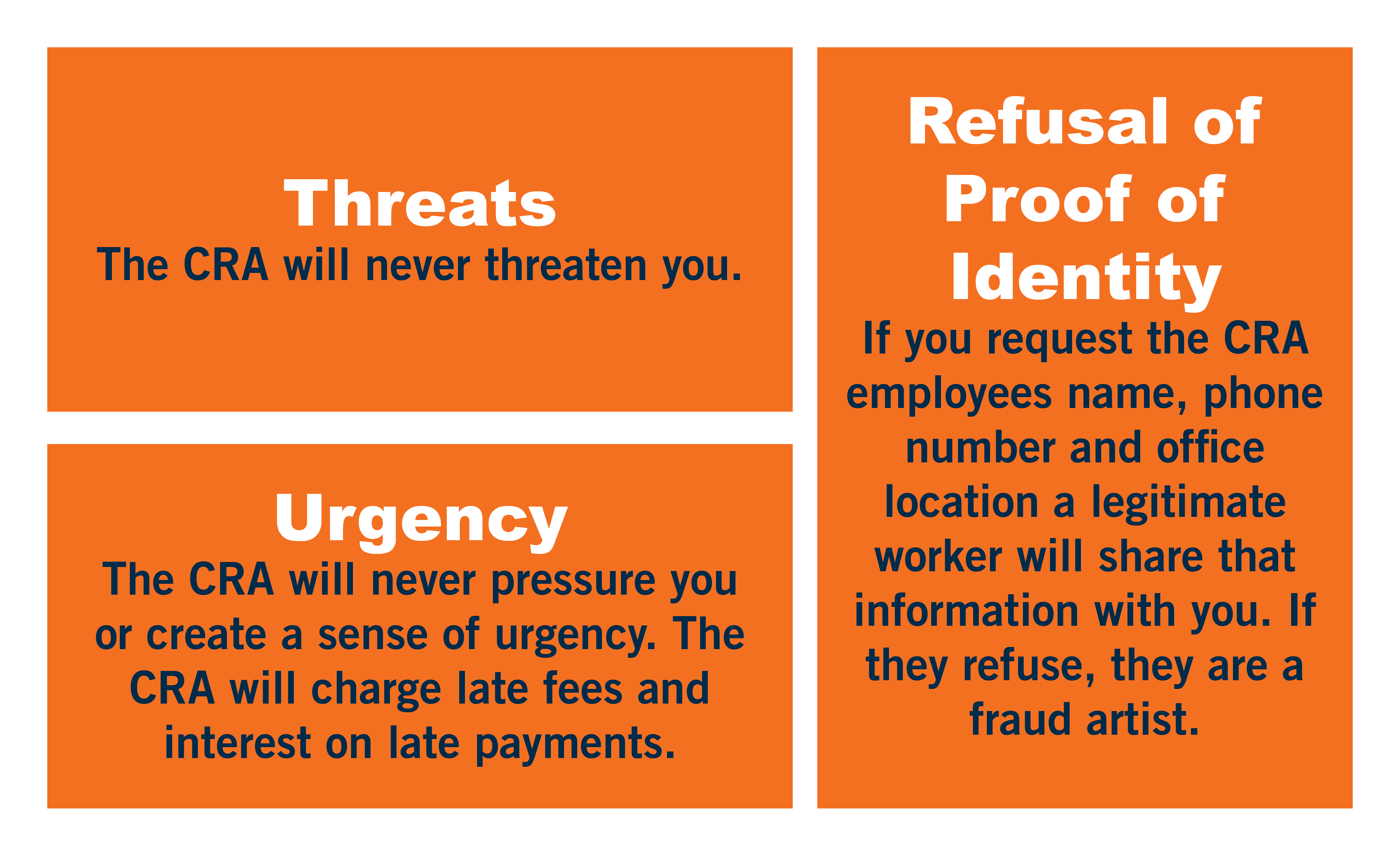-
Personal
Banking
Mortgages
-
Agribusiness
Mortgages
Loans
Farm Transition Program
-
Commercial
Banking
Mortgages
Loans
Business Services
-
Investing
Products -
Community
Community Development
Sponsorship and Donations
Financial Literacy
Volunteerism
Community Reports
Scholarships
Building Communities Grant Program
-
About
Our Roots
Our Communities
Annual Reports
Careers
Diversity and Inclusion

- Blog
- Protect Money
- Red Flags to Watch For and How to Avoid Scams
AUTHOR: TAYLOR BOEHLIG, COMMUNICATIONS AND CONTENT COORDINATOR
Grandparent Scams
Grandparent scams exploit senior citizens, with scammers pretending to be their grandchildren and requesting money to get them out of trouble. Common red flags to watch out for are:

What to do if You Suspect You Are Being Targeted with a Grandparent Scam?
- Confirm whether the person you are talking to is who they say they are. Ask them a question only your family member would know such as what your pet’s name is.
- Hang up the phone and call your family member directly. Some fraud artists will state they no longer have their phone. If you cannot reach your family member, call other family members to confirm your suspicions.
Cryptocurrency Scams
Cryptocurrency scams target individuals looking to make money quickly and victims often don’t realize they are being scammed until it is too late. Common red flags to watch out for are:
Cryptocurrency scams target individuals looking to make money quickly and victims often don’t realize they are being scammed until it is too late. Common red flags to watch out for are:

- Confirm the company is legitimate by checking if they are a registered investing platform.
- If a fraud artist has contacted you, simply tell them you are not interested investing or do not respond.
Romance Scams
Romance scams prey on individuals seeking out a connection online. In these instances, the fraudster builds a relationship and trust with the victim before requesting money to help them with medical expenses, travel or other needs.
What to do if You Suspect You Are Being Targeted By a Romance Scam?
- Request to FaceTime them if communication has only been over text or email.
- Pay attention to what time they are communicating with you, if they contact you at unusual times they likely do not live where they say they do.
- Search their profile image on Google to see if they stole the image off the internet.
- Never send funds to someone you have not met in person.
- Ask yourself “is this too good to be true?” If someone you have never met before professes their love to you, it very well could be too good to be true.
- Report it to the police, change your email, block them on all communication platforms such as email, text, and social media.
CRA Scams
CRA scams are when fraudsters call or email their victims while pretending to be official government employees. They will inform the victim of a balance owing on their taxes, or some other issue that requires immediate action with the threat of jail time if not resolved immediately.
What to do if You Suspect You Are Being Targeted By a CRA Scam?
- If you are contacted through text or email, delete it and don’t click the link. Clicking the link may put malware onto your phone or computer, putting you at risk of other types of fraud or account takeovers.
- If you are contacted by phone, it is usually a recording, not an actual person. Just hang up. If it is a person, listen to the message and listen for red flags.
- If they threaten or put pressure or urgency, hang up.



